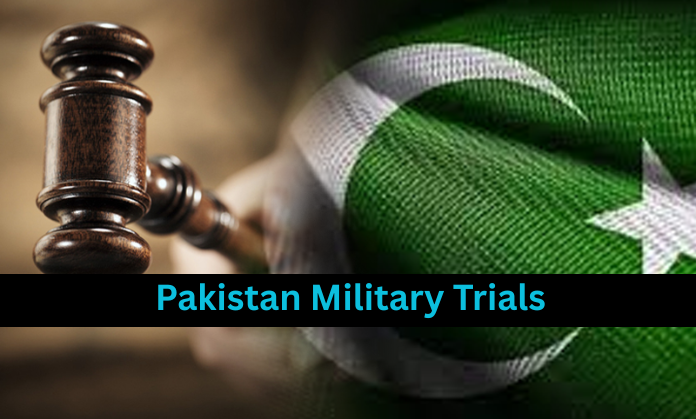The Strait of Hormuz is one of the most important waterways in the world. It is a narrow passage located between Iran and Oman, connecting the Persian Gulf to the Gulf of Oman. Every day, a significant portion of the world’s oil supply passes through this vital strait. Its location and role have long made it a flash point for tensions in the Middle East. But what would happen if Iran decided to close the Strait of Hormuz? What impact would this have globally, and how would it affect the United States? In this article, we will explore the potential consequences of such a critical event and understand why this narrow waterway is so vital for global energy and security.
What is the Strait of Hormuz?
The Strait of Hormuz is a narrow passage of water located between Iran and Oman. At its narrowest point, it is only about 21 miles wide. Despite its small size, this strait is one of the most significant waterways in the world. Approximately 20 to 30 percent of the global oil supply passes through this strait every day, making it a critical choke point for energy transport. This means that any disruption in the Strait of Hormuz can have serious global consequences for energy markets, international relations, and economic stability.
Why Might Iran Close the Strait of Hormuz?
Over the years, tensions between Iran and other nations, especially the United States and its allies, have made the possibility of a closure more than just speculation. Iran has stated in the past that it could block the strait if it feels threatened, especially if harsh economic sanctions are placed upon it or if military action is taken against its interests. For Iran, controlling the Strait of Hormuz is a significant point of leverage. By threatening to close the strait, Iran aims to gain political and economic concessions, making this vital waterway a central piece in its foreign policy.
Immediate Impact on Global Oil Supply
If Iran were to close the Strait of Hormuz, the global oil supply would be hit almost instantly. The strait is a passage for roughly one-fifth of the world’s daily oil consumption. Its closure would halt shipments from major oil producers such as Saudi Arabia, Iraq, the United Arab Emirates, and Kuwait. The result would be a sharp and immediate rise in global oil prices. In the short term, oil prices could rise by $30 to $100 per barrel, triggering economic shock waves across industries and nations that rely heavily on Middle Eastern oil.
The disruption would also create delays for shipments that would have to be rerouted, adding significant transportation costs and making oil more expensive for consumers. Refineries around the world that rely on Middle Eastern crude oil would struggle to secure supplies, causing a ripple effect across global supply chains.
Economic Consequences for the World
The global economy depends heavily on the uninterrupted flow of oil through the Strait of Hormuz. A blockage would cause energy prices to rise sharply, leading to increased transportation costs for goods and higher prices for consumer products. Inflation would rise in many countries, making daily living more expensive. Developing nations that rely on affordable oil imports would be hit the hardest, potentially triggering economic and political instability.
Countries like Japan, South Korea, India, and many nations in Europe, which rely on Middle Eastern oil, would be forced to search for alternatives quickly. This scramble for resources would strain global alliances and could even reshape international relations.
How Will This Affect the United States?
Although the United States has increased its domestic oil production in recent years, it is not immune to the global effects of a disruption in the Strait of Hormuz. The global oil market is highly interconnected, and rising global oil prices would inevitably affect gasoline prices in the United States. Even if the US can source its oil domestically, higher global prices would cause American gasoline and energy costs to rise sharply.
Moreover, the United States maintains a significant naval presence in the Middle East, especially in the Persian Gulf, making it a central player in any crisis involving the Strait of Hormuz. The United States operates its Fifth Fleet out of Bahrain, making it a likely target if tensions rise. The possibility of a military conflict between the United States and Iran would further complicate global security and could lead to long-lasting economic and political repercussions.
The United States would also be forced to review its alliances with Middle Eastern nations like Saudi Arabia, the United Arab Emirates, and Iraq, as their ability to export oil would be threatened. The crisis could accelerate the American shift towards increasing domestic oil production and pursuing alternative energy sources.
Geopolitical Ramifications
The closure of the Strait of Hormuz would have significant geopolitical impacts beyond just energy markets. It would force global powers such as the United States, Russia, and China to reevaluate their interests in the Middle East. The risk of naval confrontations between Iran and US forces would rise sharply, potentially triggering a wider conflict that could engulf the region.
NATO allies and other global actors would also be pulled into the crisis as nations seek to protect their energy interests and maintain global economic stability. The tensions could further strain relations between nations that have differing policies toward Iran.
Alternative Routes and Solutions
Although the Strait of Hormuz is a vital choke point, other alternatives do exist. Oil pipelines across Saudi Arabia and the United Arab Emirates can bypass the strait, although their capacity is limited compared to the strait itself. The United States and other nations can also tap into strategic petroleum reserves to cushion the immediate shock of rising oil prices.
Additional alternatives include increasing oil imports from North and South America, Africa, and other regions. However, these alternatives would only partially alleviate the crisis and would come with higher transportation costs and longer delivery times.
Military and Diplomatic Scenarios
In the event of a closure of the Strait of Hormuz, the risk of military escalation would be significant. The United States and its allies could launch naval operations to secure the waterway and ensure the safe passage of oil tankers. This could lead to direct clashes between US forces and Iran’s military. Meanwhile, international negotiations would be vital to d-escalate tensions and seek a diplomatic solution.
A closure of the strait would also test alliances across the globe. The United States would have to work closely with its NATO partners, Middle Eastern allies, and other nations reliant on oil from the Persian Gulf to maintain stability and security.
Long Term Impact and Lessons
A crisis in the Strait of Hormuz would be a wake-up call for nations across the globe. It would highlight the vulnerability of global supply chains and the urgent need for energy security and diversification. Countries, especially the United States, would be forced to rethink their energy policies, focusing more sharply on increasing domestic production and exploring alternative sources like wind, solar, and electric energy.
The crisis would also underscore the importance of global cooperation and diplomacy in managing critical international waterways. In an era where tensions can quickly escalate, a stable and secure Strait of Hormuz is vital for global economic stability and peace.
Conclusion
If Iran were to close the Strait of Hormuz, the impact would be felt far beyond the Middle East. The global oil market, international relations, and economic stability would all be thrown into turmoil. The United States would be particularly affected, with rising gas prices and increased military and diplomatic pressure. Understanding the significance of this vital waterway is crucial for nations that seek to secure their energy future and maintain global stability. In a world where a single choke point can shape global events, the Strait of Hormuz serves as a reminder that cooperation and dialogue are more important than ever.




